Staying Physically and Mentally Prepared for Aviation Success
” Pre-flight Fitness: Staying Physically and Mentally Prepared for Aviation Success”, refers to the physical and mental condition of individuals. Particularly pilots and aviation professionals, before they embark on a flight. It encompasses various factors that can influence a person’s ability to safely and effectively carry out their aviation duties. Pre-flight fitness is crucial in the aviation industry because it directly impacts the safety of flight operations. Here’s what is typically meant by pre-flight fitness:
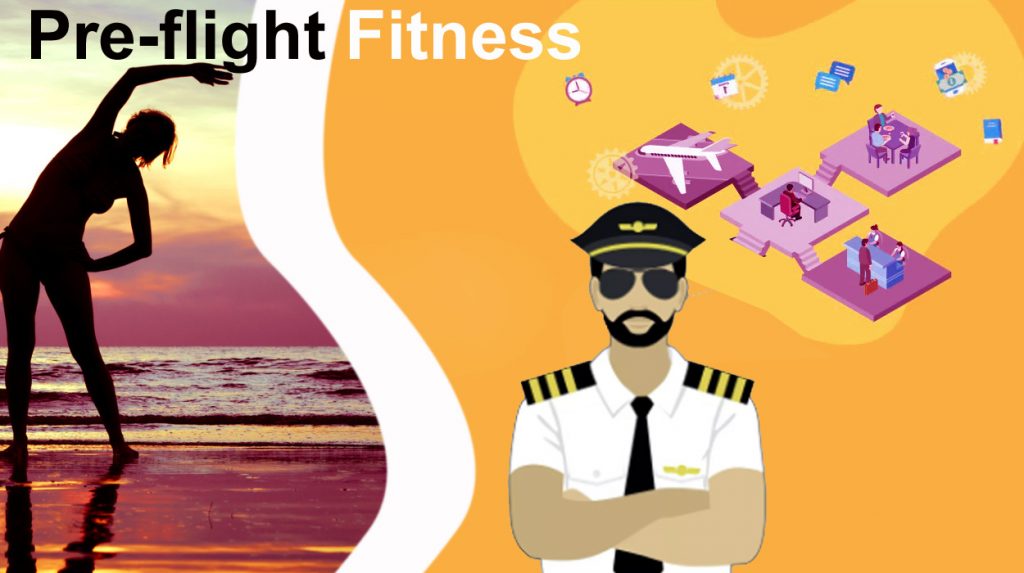
Physical Health:
The physical health of a pilot is of utmost importance to ensure safe and effective operation of an aircraft. Pilots are required to meet specific medical standards and undergo regular medical examinations to maintain their fitness to fly. Here are some key aspects of a pilot’s physical health:
Vision: Good vision is crucial for pilots. They should have clear, corrected-to-normal vision to see instruments, read charts, and spot other aircraft. Some vision conditions, like color blindness or certain degrees of myopia, can disqualify a pilot.
Hearing: Pilots need adequate hearing to communicate with air traffic control and hear warning alarms and engine noises. Hearing loss or impairment can impact a pilot’s ability to fly.
Cardiovascular Health: Cardiovascular conditions can be life-threatening in flight. Pilots must have their cardiovascular health assessed regularly to detect any issues that might impair their performance or cause emergencies while flying.
Neurological Health: Neurological conditions, including epilepsy or certain disorders affecting cognitive function, can disqualify a pilot or restrict their flying privileges.
Respiratory Health: Good respiratory health is important for pilots, as they need to maintain their oxygen levels at altitude. Conditions like chronic obstructive pulmonary disease (COPD) can be problematic for pilots.
Psychological Health: Pilots must have good mental health and emotional stability. Stress, anxiety, or other mental health issues can affect a pilot’s decision-making and performance.
Drug and Alcohol Use: Pilots are subject to strict regulations regarding alcohol and drug use. Any substance abuse can lead to the suspension or revocation of a pilot’s license.
Overall Fitness: Pilots are expected to maintain a level of physical fitness to perform their duties effectively. They should have the strength and endurance to operate the aircraft controls and handle emergency situations.
Medications: Some medications can affect a pilot’s ability to fly safely. Pilots need to be aware of any potential side effects and consult with aviation medical examiners to ensure their medications do not impair their flying abilities.
Diet and Nutrition: Maintaining a healthy diet is important for pilots, as it can impact their energy levels and overall well-being. Staying properly hydrated is especially important due to the dehydrating effects of flying at altitude.
To maintain their physical health, pilots typically undergo regular medical examinations conducted by certified aviation medical examiners (AMEs). The frequency of these exams can vary based on the pilot’s age and type of license, but they are typically required at least once a year for commercial pilots. Pilots are also expected to self-report any changes in their medical condition to the aviation authorities.
Ensuring pilots are in good physical health is essential to the safety of air travel, as their ability to make quick and accurate decisions can be a matter of life and death for both passengers and crew.
Mental Fitness:
Mental fitness refers to an individual’s cognitive and psychological well-being. It encompasses factors like mental alertness, cognitive functioning, emotional stability, and stress management. Aviation professionals need to be mentally prepared and alert during flight operations to make critical decisions and respond to changing conditions.
Rest and Fatigue Management:
Adequate rest is essential for pre-flight fitness. Aviation professionals should have had sufficient sleep and rest before their flight duty to ensure they are mentally and physically alert. Managing fatigue is critical to prevent errors and ensure safety.
Alcohol and Substance Use:
Pre-flight fitness also includes abstaining from alcohol, drugs, or any substances that could impair judgment or physical coordination. Strict regulations and policies are in place to prevent alcohol and substance abuse among aviation professionals.
Health Conditions:
Aviation professionals should be aware of any pre-existing medical conditions and medications they are taking that could affect their fitness for flight. They must ensure that their medical conditions are under control and comply with regulatory requirements.
Nutrition:
Maintaining a balanced and nutritious diet is important for pre-flight fitness. Proper nutrition can provide the necessary energy levels and cognitive function required during flight operations.
Stress Management:
Managing stress and maintaining mental resilience is crucial for pre-flight fitness. Aviation professionals often encounter high-pressure situations, and effective stress management techniques are essential for maintaining focus and composure.
Regulatory Compliance:
Regulatory authorities, such as the Federal Aviation Administration (FAA) in the United States, have specific requirements and standards for pre-flight fitness that aviation professionals must adhere to. Compliance with these regulations is mandatory.
In summary, pre-flight fitness is a comprehensive concept that encompasses physical and mental well-being, rest, avoidance of substances that impair performance, and adherence to regulatory requirements. It ensures that aviation professionals are physically and mentally prepared to operate safely and effectively during their flights.
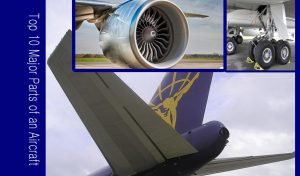
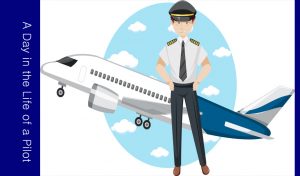
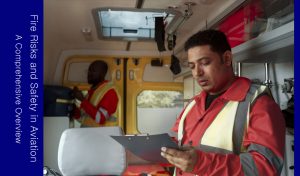
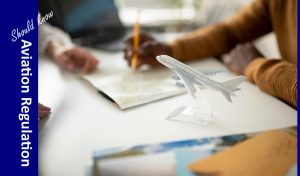



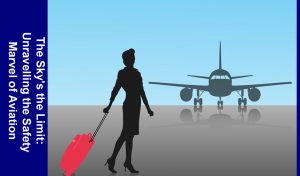


Leave a Reply